History
Timeline

First groups build houses in Colonia Pedregal de Santa Julia, Tijuana, Mexico (West TJ).
Partnership with Hogar de los Niños Orphanage to host house building groups.
Homes Without Boundaries 501(c)3 non-profit organization formed in Washington state.
500th house built.
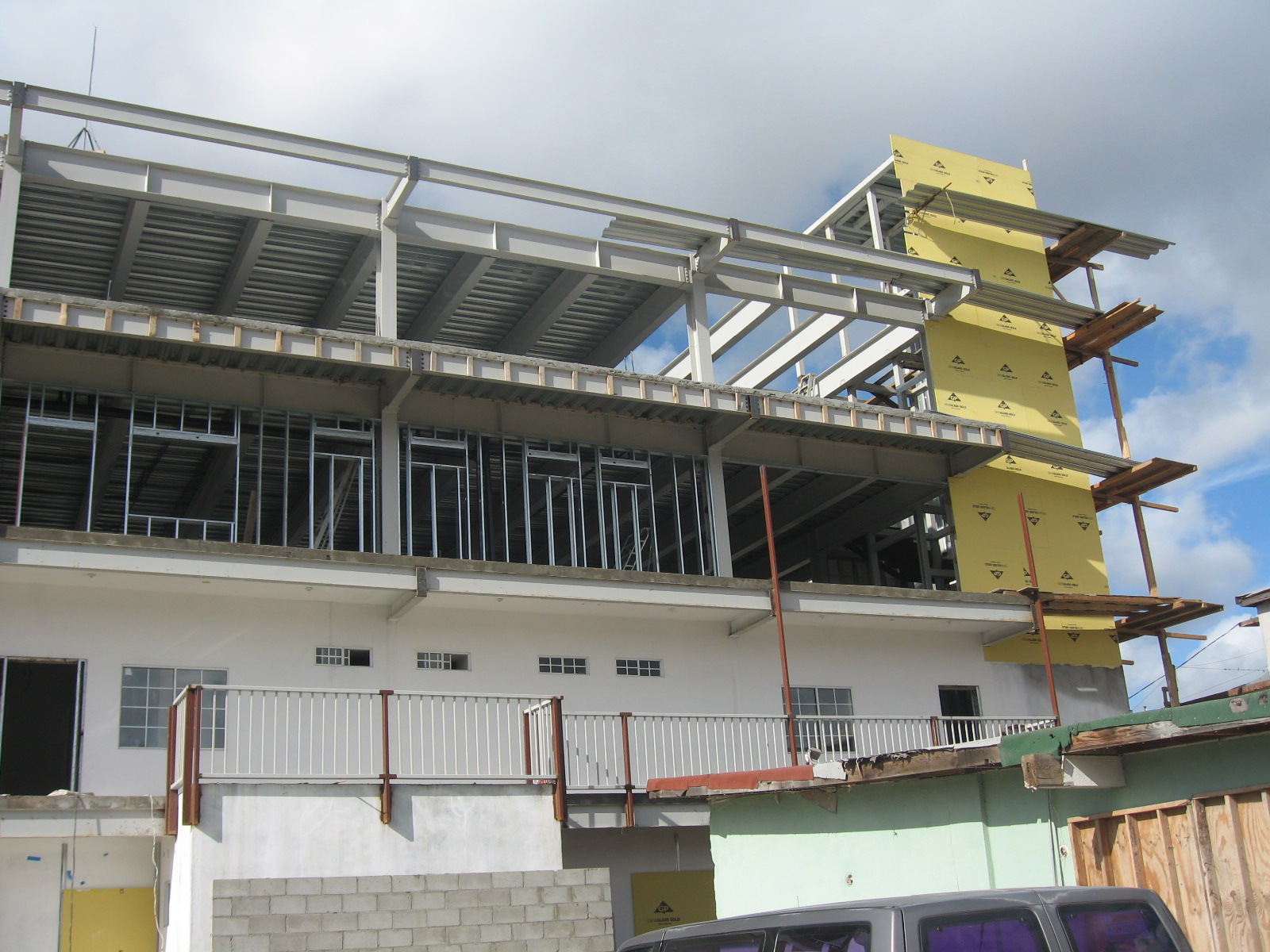
1000th house built.
Hogar de los Niños Orphanage undergoes major construction and expansion.
Education scholarship program started in West Tijuana with 10 children.
Education after-school program started with dedicated homework classroom.
50 children enrolled in education scholarship program.
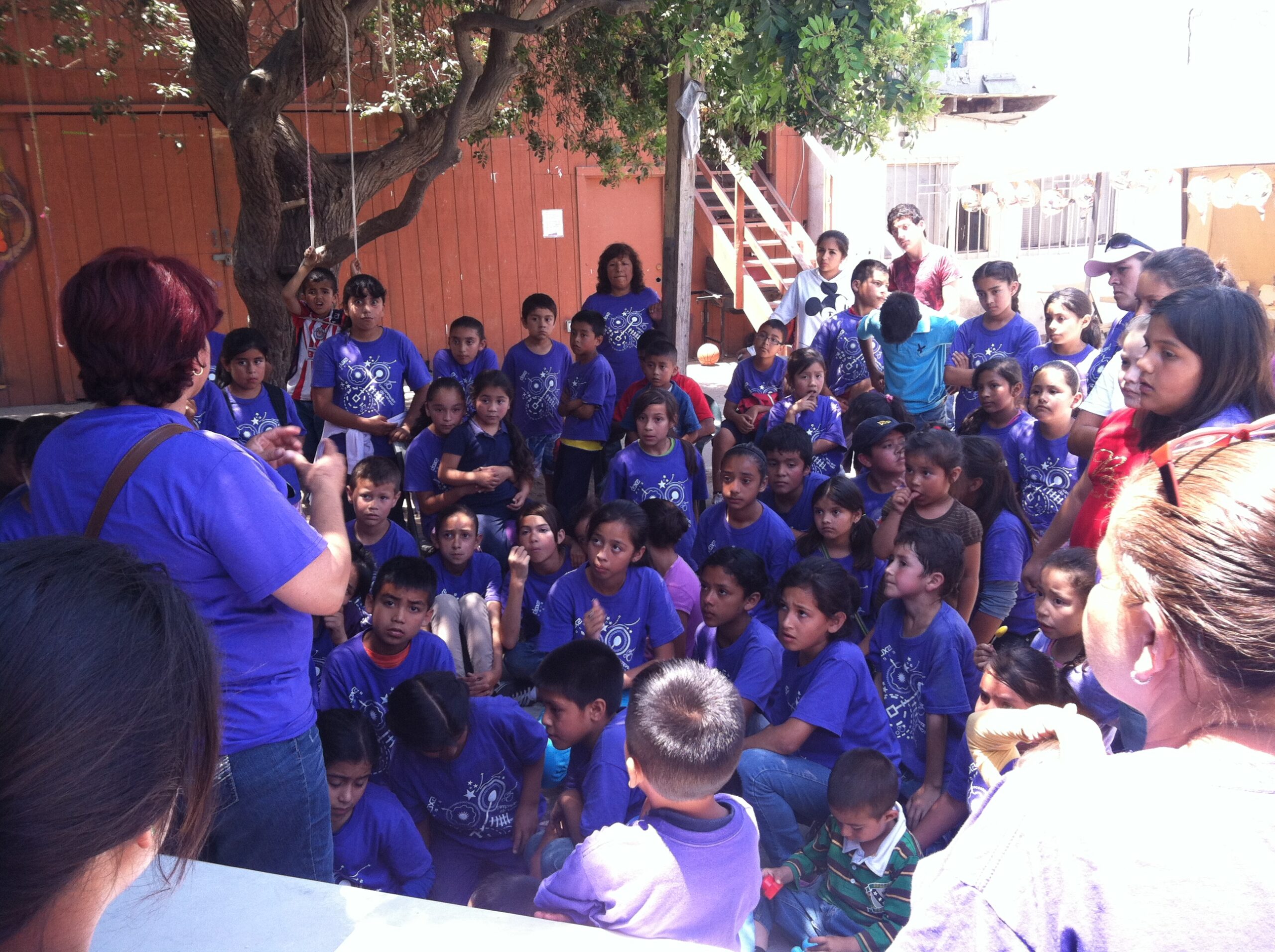
First year of summer camp, which takes place annually during the month of July.
Homes Without Boundaries legally changes name to Doxa.
Doxa also incorporated in Mexico as a non-profit organization.
1500th house built.
100 children enrolled in education scholarship program and summer camp.
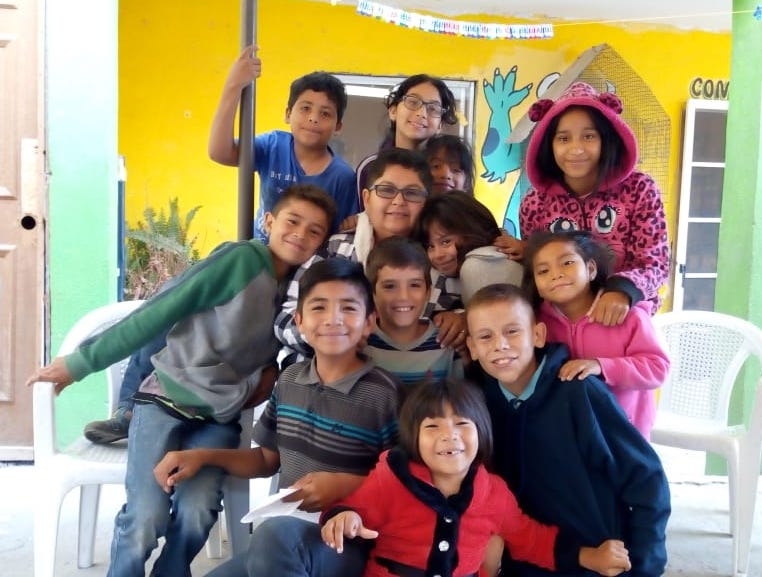
First groups build houses in Ejido Javier Rojo Gomez, Tijuana, Mexico (East TJ).
Partnership with Unidos por Siempre Orphanage to host house building groups.
New property acquired in West TJ to be future home of education and community work.
2000th house built.
Education scholarship program started in East TJ with 30 children.
Unidos por Siempre Orphanage undergoes facility expansion.
Full History
From the late-1980s, the population of Tijuana started to explode. People were drawn to the border town for local employment opportunities or the hope of crossing into the United States. Lower wages throughout Tijuana meant that many families could afford to buy a small plot of land in the outskirts of the city, but could not build adequate shelter upon that land. Tony, the founder of Hogar de los Niños Orphanage, noticed the need for safe, secure, and durable housing. Rod, the owner of a lumber company in Los Angeles, designed a wood frame house built upon a concrete slab. The house design was simple enough that a team of youth with no construction experience could build it in a week’s time.
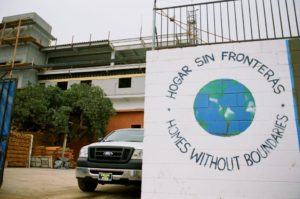
Meanwhile, the idea of international mission trips especially designed for youth ministry were starting to become more widespread throughout the United States. Realizing the confluence of factors at work, a couple youth groups from Washington state began to come to Tijuana to build houses over their spring break. The groups stayed at Hogar de los Niños Orphanage, built houses in the surrounding neighborhoods, and experienced the fullness of Tijuana along the way.
Throughout the 1990s, there was rapid growth of groups coming to build houses. There arose a need for an organization to help facilitate group planning, logistics, and operations on the ground. In1997, Homes Without Boundaries was formed to provide this support. Groups from all over the United States came to Tijuana, to get a little dirty and uncomfortable while giving themselves away. Homes Without Boundaries became a tool for youth ministry, meaningful work, and cross-cultural relationships.
In the mid-2000s, many people started to notice that not all children went to school in Tijuana. As house building groups got to know the families they were building with, it was common for at least one or two of the children to drop out of school early. Starting in 2007, Homes Without Boundaries’ vision grew to include education scholarships and an after-school program. Shortly thereafter, an annual summer camp, dance classes, parenting seminars, and other community events were being organized. Within a few years, Homes Without Boundaries had organically created a robust education program and opportunities for the surrounding community to gather. All of these were natural extensions of the relationships and commitment formed during the many years of house building.
With all of this expansion, Homes Without Boundaries was no longer the appropriate name for the organization. The name was officially changed to Doxa in 2011 to more fully encompass the house building, education, and community work taking place.
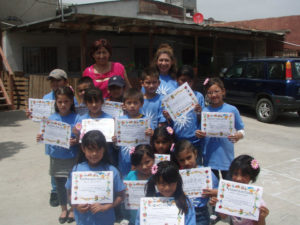
In the mid-2010s, many people noticed changes throughout the neighborhoods in which Doxa had traditionally built houses. Electricity, running water, sewer, working cars, and even paved streets were permeating the hills of West Tijuana. As these and other positive signs of development started to show, the need for house building gradually decreased. Therefore, in 2017, Doxa started to also build houses in East Tijuana. In terms of development, the neighborhoods in East Tijuana are generally 10-15 years behind those of West Tijuana. Just as Doxa partners with Hogar de los Niños Orphanage to host groups in West Tijuana, Doxa partners with Unidos por Siempre Orphanage in East Tijuana. Furthermore, in 2019 Doxa started providing education scholarships in East Tijuana.
Currently, Doxa has facilitated the building of over 2,000 houses (thereby housing over 10,000 people), provides education scholarships to over 120 kids annually, partners with two orphanages, and operates a community center. Tens of thousands of volunteers from all over the United States have traveled to Tijuana to serve. Lives on both sides of the border have been forever transformed.